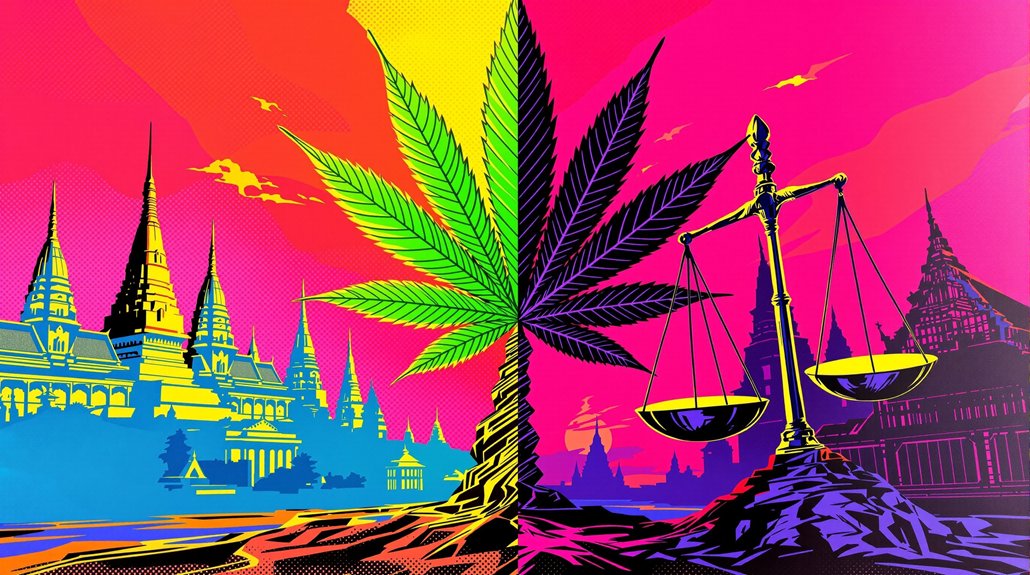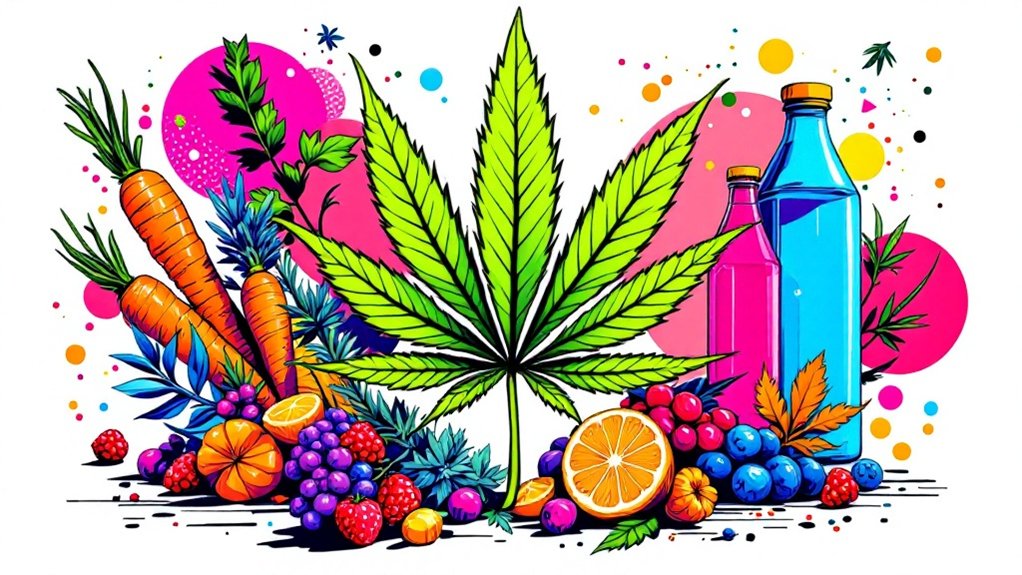Thailand’s cannabis laws present a bewildering contradiction that has tourists and locals scratching their heads. The government removed marijuana from its narcotics list in June 2022, technically making possession legal. Yet police continue arresting people for smoking joints in public spaces. The confusion stems from a patchwork of regulations that legalize medical use while maintaining criminal penalties for recreational consumption. Business owners selling cannabis products operate in a gray zone, unsure whether tomorrow brings profit or prosecution.
While Thailand once imposed some of Asia’s harshest cannabis penalties, including potential death sentences for trafficking, the kingdom has executed one of the region’s most dramatic drug policy reversals in recent years. Yet this transformation has created a legal labyrinth that leaves both users and businesses traversing treacherous regulatory terrain.
Thailand’s cannabis decriminalization created a regulatory maze where businesses and users navigate contradictory laws and uncertain enforcement daily.
The journey from prohibition to partial acceptance spans nearly a century. Cannabis served traditional Thai medicine for generations before the Marijuana Act of 1934 criminalized its use, later reinforced by the brutal Narcotics Act of 1979. Category V narcotics classification meant traffickers faced lengthy prison terms or execution. International pressure, particularly from America’s “War on Drugs,” cemented these draconian measures.
Medical cannabis breakthrough arrived in 2018 when Thailand became the first Southeast Asian nation to permit licensed medicinal use. The 2019 legalization of medical cannabis marked a seismic regulatory shift. Universities began sponsoring research programs while licensed cultivation gained government approval. Unlike in Mexico, where Supreme Court ruling declared cannabis prohibition unconstitutional yet full legalization remains elusive, Thailand has moved more decisively toward implementation.
June 9, 2022 delivered the bombshell announcement: cannabis removal from the prohibited narcotics list. Decriminalization became reality overnight. The problem? Lawmakers failed to establish detailed recreational use frameworks.
This regulatory vacuum creates daily confusion. Recreational cannabis remains technically illegal despite widespread tolerance following 2022 reforms. Enforcement proves wildly inconsistent due to unclear legislation. Business owners operate in perpetual uncertainty while consumers wonder whether their next purchase might trigger prosecution.
The legal boundaries blur further with THC restrictions. Products containing above 0.2% THC remain prohibited except authorized medical cannabis. CBD products flow freely through legal channels for non-psychoactive applications. Yet determining which dispensary products meet legal requirements becomes guesswork for average consumers.
Public use restrictions add another complexity layer. Cannabis smoke qualifies as public nuisance under the Public Health Act of 1992, triggering potential fines. Sales to minors, pregnant women, and breastfeeding mothers face strict bans. Import and export maintain heavy regulatory controls.
Urban centers witness dispensary explosions following decriminalization. Licensing requirements govern cultivation, production, and distribution for medical and industrial purposes. Cannabis-related businesses multiply rapidly, particularly in Bangkok and tourist destinations. However, evolving regulations create compliance nightmares for entrepreneurs attempting legitimate operations. The shift to medical-only supervision became official on July 1, 2025, requiring prescriptions for cannabis flower purchases and marking the end of Thailand’s brief recreational tolerance period.
Traditional medicine, cuisine, and agriculture historically embraced cannabis throughout Thai culture. Social movements and advocacy groups drove recent reforms, citing health benefits and economic opportunities. Reform momentum builds from potential tourism revenue and agricultural diversification benefits.
The contradictory legal landscape persists as officials debate further legalization extent and timing. Proposed legislation aims to resolve current ambiguities, though implementation timelines remain uncertain. Meanwhile, thousands of businesses operate within gray zones while consumers risk prosecution for activities many consider decriminalized. Thailand’s cannabis industry holds tremendous growth potential, with market projections estimating revenues could reach 50 billion THB by 2026.
Thailand’s cannabis revolution demonstrates how rapid policy changes without detailed frameworks create more problems than solutions. Until lawmakers provide clear recreational use guidelines, the kingdom’s marijuana users continue rolling the dice with every purchase and puff.







